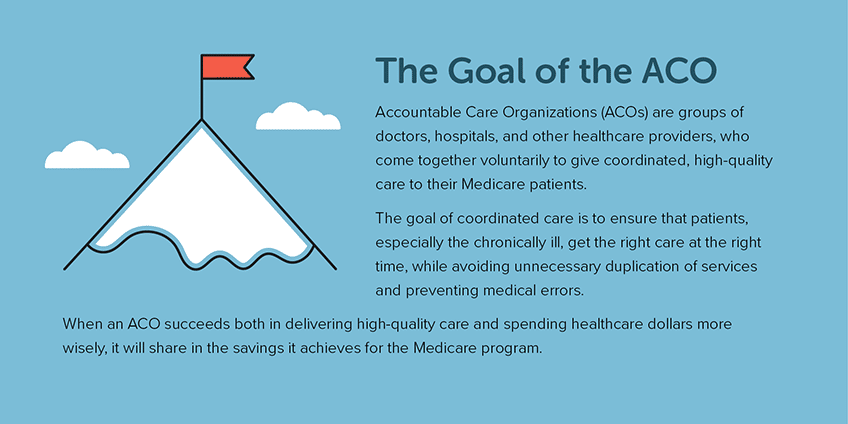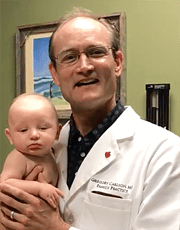Advanced Medical Assistants to the Rescue!
- 4 December 2017
- Blog
eClinicalWorks
What to do when the doctor cares too much
Yes, every doctor cares about their patients. But some doctors really, really care about their patients. These are the selfless physicians who will put the practice of medicine ahead of their need for personal time, family, and the need to recharge after what can be a very long day at the office.
The results can be very bad for everyone’s health.
According to a study in the September-October 2015 Family Practice Medicine, 46% of physicians report some level of burnout, with consequences ranging from lower patient satisfaction and increased errors to higher risk for drug and alcohol abuse among providers, and even suicide.
The study offers a stark warning: “If you do not build the habit of putting yourself first when you are not with patients, burnout is inevitable.”
Keeping a focus on the patient
Dr. Gregory “Duke” Carlson of TexomaCare, based in Denison, Texas, is one of those doctors who really, really cares about his patients. He’s also one of those doctors who understands the risks that can come with caring so deeply. And unlike many who acknowledge the risks of their profession, Dr. Carlson has taken specific steps to reduce his risk of burnout by hiring advanced medical assistants.
For Dr. Carlson — as with many other physicians in our computer-saturated age — it was less a matter of spending too much time with patients and more a matter of spending too much time with the computer keyboard and screen during the medical encounter.
Dr. Carlson realized that typing Progress Notes and completing documentation was getting in the way of speaking to each patient, conducting those face-to-face interactions at the heart of medicine.
So what to do about it?
Well, a moment’s reflection suggests that non-physicians cannot do the physician’s job. On the other hand, many of the routine things that physicians do in the course of an encounter can be done by a trained medical professional. Gathering demographic information. Asking background questions about the case. Pulling previous medical records.
At TexomaCare, employing advanced medical assistants has helped prepare the way for a more efficient, effective, and authentically human medical encounter.
The assistants help with pre-exam intake and preparation. They ensure that patients have complied with all tests and procedures that may have been ordered during previous visits. They’re the folks who ensure that all the relevant medical records for each patient really are at the provider’s fingertips when the exam begins.

Don’t forget! Top of that license!
Strategic use of advanced medical assistants has allowed TexomaCare physicians to work at the highest level of their licensures. The practice has increased Medicare well visits and used many of those visits to improve patient compliance with tests and procedures. Dr. Carlson and colleagues have reduced the risk of burnout while ensuring a higher quality of care.
Dr. Carlson appreciates the fact that by the time he gets to the exam room, all the preliminary work has been done for him, leaving him to focus on discussing the patient’s case in depth. And because he has two assistants, one can remain in the exam room, recording the interaction with the patient, his recommendations of medications, supplements, and exercises — allowing him to stay connected to the patient.
Since hiring his assistants, Dr. Carlson said he has received fewer calls from the pharmacy reminding him to call in prescriptions, and fewer calls from his referral team questioning why a given patient wasn’t sent for physical therapy.
What it comes down to, Dr. Carlson said, is finding ways not to forget things. After all, each year brings new requirements for reporting and compliance. Medicine grows more and more complicated, while physicians remain the human beings they have always been. And that means that however accomplished they may be, they will still forget things.

“You know, if I’ve got four tasks that I’ve got to do, which are data-input tasks, it’s possible that I’m going to forget one of those, whereas if somebody’s doing it real time as I’m seeing the patient, they are confident that it’s going to happen.”
– Dr. Gregory “Duke” Carlson of TexomaCare
The bottom line: Better medicine
For Dr. Carlson, the ultimate goal in employing medical assistants goes right back to his patients. Yes, reducing physician burnout is a key goal, to the point that he ranks it on par with quality, safety, and cost-control. But the real payoff is identifying high-need patients more efficiently and providing for appropriate care.
So, beyond having medical assistants, TexomaCare has additional procedures:
- Daily morning staff huddles are used to review the schedule for the day ahead, do a bit of pre-visit planning, and perhaps make some educated guesses as to which patients may need a bit more time and attention and which will be relatively straightforward.
- TexomaCare’s medical assistants are trained to go through dashboards and take note of which patients have been in the Emergency Department or hospitalized recently, another key indicator of the possible need for more intensive services.
- Assistants can even implement the eClinicalWorks Chronic Care Management module, creating care plans to improve the quality of care and help meet the ACO’s goals.
“If you look at the numbers,” Dr. Carlson said, “a physician usually has to see about two to three extra patients per day, depending on their payment model, to pay for a scribe. So I’ve seen five or six extra patients per day, depending on the type of patient. So it’s been a win for me financially.”
Less stress. Lower risk of physician burnout. And a more sustainable practice.
Click here to see the full case study








